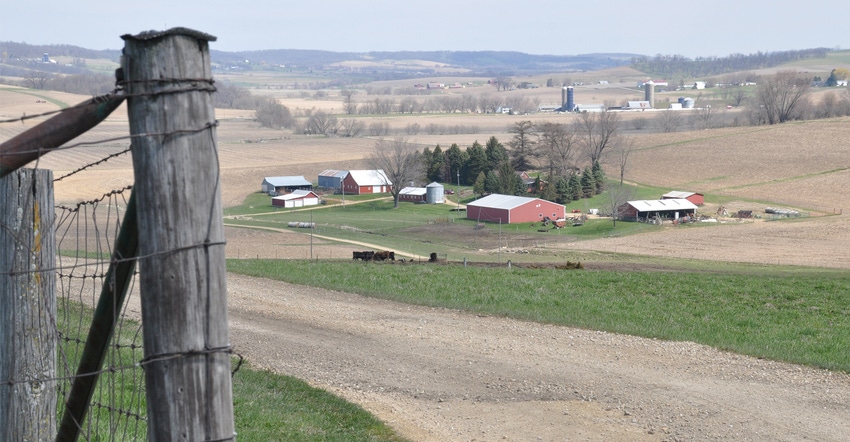May 10, 2022

It’s that time again. You are stepping out in faith and investing an enormous amount of time and money in the dirt. It takes a lot of nerve sometimes, especially when input costs have reached unbelievable levels.
Life is good. You are in good health. On the other hand, you are older than you have ever been. What kind of legacy will you be leaving? What effect are you having on others now, and how will your accumulated efforts impact others when you are gone? What will your farm do for your family then? Will it unite or divide them?
In an estate planning article, it is easier to read about ways to leave more estate to your heirs free of estate tax. It is more comfortable mentally debating things like, “Do I need a trust?” “Should I set up a limited liability company?” “Is my will up to date?” “Will my estate go through probate?”
But do those things really matter?
There is an interesting seven-minute talk by Simon Sinek that highlights successful leaders and organizations, and the way they think. He discusses three elements: how, what and why. Some of the principles apply to your legacy and estate planning.
How? It is easiest to think about tools and strategies. Your will and trust are tools. The limited liability company might be a useful tool, as might a corporation or partnership. These tools represent “how” you will pass your estate on someday. With appropriate professional assistance, you will write and sign legal documents to make it happen. Choosing the right tools will be an important step. But that is definitely not the first step.
What? Before you go down the path of choosing tools, “what” are you trying to do? Pass your estate along to heirs. Probably you will want to minimize the family costs in the process, such as legal fees, taxes and the like. Divide the estate in some manner you think fair. Make sure the right successor is in a position to thrive, without becoming too entitled. Treat the non-farm heirs fairly; you brought them into the world, too, and you raised them to be what they are.
You might want to build in protections for all heirs to help assure that a lawsuit or divorce doesn’t take their inheritance from them. With the dramatic ebb and flow in politics and tax law, you will want to design the plan so it is easy to update while you are living, and so that it hedges against tax laws of the future. Don’t sell yourself short on what good you can achieve with careful estate planning. Don’t settle for vague generalities.
Why? But even before you commit yourself to specifically what you want to accomplish, seriously ponder the “why” for all of this. Why does all of this matter? Why do you care? Why should you invest time and money into estate planning? Why not just enjoy your life as it is until you die, and then let the family and Uncle Sam sort things out?
This is not intended to be a throw-away question, and at one level you might respond that “it’s obvious!” But make yourself go beyond the obvious. Get to the heart of the matter. What core values do you have that make you care what happens to your estate?
Is there something ultimately good about farm life that you believe your grandchildren should experience?
Is it a sense of duty to your ancestors? Because they raised you to be frugal, to save for a rainy day, to pass things on in better shape than you received them?
Is it your accountability to God, to be a faithful steward of your blessings?
Is it the promises you’ve made to your successor, that if he or she stays with you through the hard times, they will share in the reward?
Tractor time is thinking time. Use some of it to think about your legacy. Ask yourself tough questions, even uncomfortable questions. As Sinek says, “Start with why.” After you get to the heart of why, let that motivate you to work on the details of what.
When planting is done, take your “why” and “what” to the professionals. Legal counseling can make sure you have developed the what as thoroughly as possible, to do all the good you can in support of your why. At that point, with competent professionals, the “how” tools should be the easy part.
Ferguson is an attorney who owns The Estate Planning Center in Salem, Ill. Learn more at thefarmersestateplanningattorneys.com. The opinions of this writer are not necessarily those of Farm Progress/Informa.
About the Author(s)
You May Also Like






